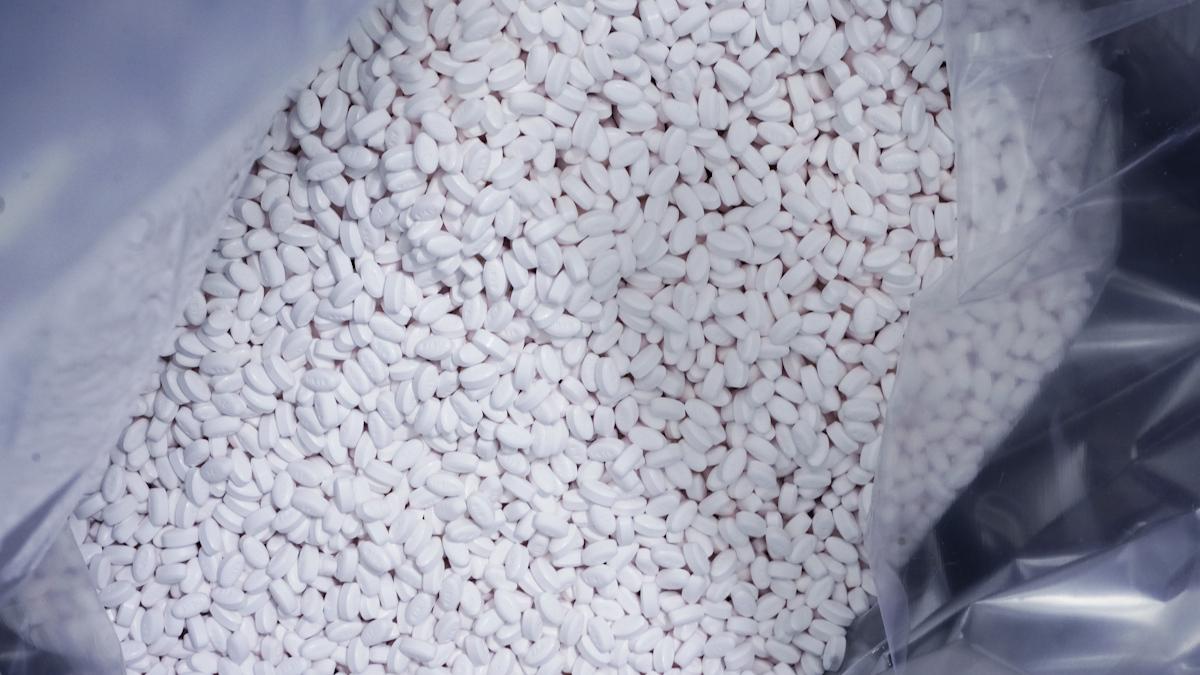Living the life of a type 2 diabetes patient for a day

Mark Doyle, co-founder of The Method and creator of the A Life in a Day programme, tells us about the immersive experience he and his team created that allows anyone to live the life of a type 2 diabetes patient for 24 hours.
Approximately 422 million people worldwide live with diabetes, the majority suffering from type 2 diabetes, but many healthcare professionals don't understand the full extent of what it's like to live day-to-day as a diabetes patient.
"In 2015, we were approached by one of our pharmaceutical clients who said they've got this promise, which is they're going to put the patient at the centre of what they do, and they really want to live up to that promise," Doyle says.
"But the reality is that while they understand the science, the data, and the medicine, perhaps they don't understand the patients as much as they ought to. So, they challenged us to create an immersive experience where participants have the opportunity to walk in the shoes of a patient for up to 24 hours.”
Therefore, Doyle and his team created The Life in a Day immersive experience for type 2 diabetes.
The programme aims to measurably increase understanding and knowledge about type 2 diabetes to aggrandise people’s empathy and enable people to identify tangible ways healthcare can be more patient-focused.
Becoming a diabetes patient
Once Doyle and his team started conversing with people working in healthcare and pharma, they considered whether people underestimated how hard it can be to change one's lifestyle so radically and dramatically in the wake of a type 2 diabetes diagnosis.
They also wanted to relay the wider impact of the condition on relationships, self-competence, self-worth, emotional well-being, work, social circles, and so on.
The 24-hour fully immersive experience is provided in three components: an app, live role play, and a kit.
Participants experience what it might be like to live with the condition from the moment they awaken, to when they go to work, while at home, and, sometimes, overnight.
"The experience integrates completely into your life. You don't stop what you're doing to take part. Instead, you are you, but for one day, you experience what it might be like to be you living with the condition," Doyle states.
First, an interactive app sends the participant information, challenges, and dilemmas from the moment they wake up, which they need to respond to as if they're a patient.
Throughout the day, live role-play becomes part of the participant's experience.
"You might get a call from your HCP, from a patient support group, or from your boss who could potentially put you in a position where you have to choose your career against your health. You have to answer real-life dilemmas," Doyle states.
"Finally, there's a kit of items that we send out, and they include some medical props that you might interact with. We have hidden wearables to give you different sensations. We have smells, like a smell for nausea and unpleasant smells, to give insight into what patients might be experiencing. We use liquids, [fake] blood, all sorts of different things to give you a real visceral insight to what it might be like to be a patient."
At the end of the experience, participants learn to act like a patient because they follow the instructions via the app, talk like a patient through conversations with actors, and feel like a patient with the different items providing different sensations.
Allowing healthcare providers, including pharmaceutical companies developing treatments for type 2 diabetes and clinicians implementing those therapeutics, to walk in the shoes of a diabetes patient provides a better understanding of the effects of the disease, which in turn allows for treatment options to be more specific to patient needs.
Creating the experience
The creators drew upon their backgrounds in theatre, Doyle as an actor and his business partner as a writer/director, to create immersive learning experiences.
Two years ago, the company had three healthcare-related experiences. Today, six healthcare experiences are in development, and 14 experiences are already in existence.
Multiple therapy areas are covered, including heart failure, chronic kidney disease, renal cell carcinoma, CAR-T and multiple myeloma, lung cancer, fibrodysplasia ossificans, progressive (FOP), atopic dermatitis, COPD, severe asthma, lupus, ulcerative colitis, biologic injectables, and, most recently, type 2 diabetes.
Doyle says it was clear diabetes was an essential condition to focus on from the moment the company began creating these experiences, because of the sheer scale of the disease.
However, everyone who lives with diabetes is in a different stage of the disease, so the creators had to ensure the offering presented the true scope of the disease.
"It's called A Life in a Day, not a day in a life. That means we use tools to accelerate time during the experience. The diabetes programme lasts for a day. But in that time, we cover what could take many years in a patient's life," Doyle says.
"That allows us to provide access across the patient experience. And that's important because we knew from the outset that we didn't want to, for example, only focus on very advanced diabetes. We had to show the development and challenges that come along with different stages over time."
The creators used their theatre background and storytelling techniques to take people on a coherent and emotional journey through the condition.
Simultaneously, participants move through different phases of the disease. Though the participant is immersed in the experience for only a day, they receive the whole scope of the disease.
Use by pharma and clinicians
Over the last several years, there's been a considerable focus in the healthcare industry, especially within pharma, on patient centricity.
"If you're a pharmaceutical company working in any field, but let's say type 2 diabetes, and you're saying that you put patients first or placing patients' interests high on the agenda, you've got to act on that promise," Doyle states.
In general, people who work in pharma or healthcare are genuinely focused and motivated to improve patient outcomes but understanding the patient experience is crucial to do so effectively.
"When you show people working in the field what type 2 diabetes is like outside of the clinical setting, people start to identify ways that they might be able to better support patients," Doyle states, "whether that's someone working in R&D looking for a way to improve a clinical trial, someone in the brand team looking for ways to improve patient materials, or commercial teams looking for ways to have more patient-focused conversations with customers."
So far, about 8,500 participants in the healthcare and pharma industries have undergone the experience. It's available in 55 countries and is provided in 12 languages.
"Our core market is the pharmaceutical market, but we're also looking to partner with our pharma clients to take it to healthcare professionals. Ultimately, it's about helping the patient, and we really want to inspire the healthcare sector to feel the same way – to be obsessed about finding ways to better support patients," Doyle states.
About the interviewee
 Mark Doyle is co-founder of The Method, a British learning and development company, and creator of its award-winning, immersive A Life in a Day programme. Driven by a belief that healthcare works best when centred around patients’ needs, Doyle designed A Life in a Day to support greater patient-centric thinking, engagement and care among the pharmaceutical and healthcare industries. To date, these experiences have been delivered successfully to clients in more than 55 countries across the world.
Mark Doyle is co-founder of The Method, a British learning and development company, and creator of its award-winning, immersive A Life in a Day programme. Driven by a belief that healthcare works best when centred around patients’ needs, Doyle designed A Life in a Day to support greater patient-centric thinking, engagement and care among the pharmaceutical and healthcare industries. To date, these experiences have been delivered successfully to clients in more than 55 countries across the world.
About the author
 Jessica Hagen is a freelance life sciences and health writer and project manager who has worked with medical XR companies, fiction/nonfiction authors, nonprofit and for-profit organisations, and government entities.
Jessica Hagen is a freelance life sciences and health writer and project manager who has worked with medical XR companies, fiction/nonfiction authors, nonprofit and for-profit organisations, and government entities.













